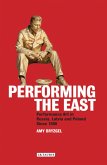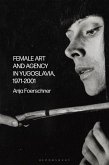The emergence and the activities of a second public sphere in the areas of Soviet influence were intricately linked to the performative and intermedial production and usage of alternative spaces. Applying a multitude of perspectives and networked topography, The Hungarian Avant-Garde and Socialism investigates artistic strategies of spaces - namely those of the artist's studio, exhibitions, installations, clubs, apartments, cellars, event halls, and chapels - all of which existed parallel to or were interwoven with the regulated public sphere in Hungary from the beginning of the 1960s to the era immediately following the Kádár regime.
This book captures and discusses the exclusionary and inclusionary mechanisms inscribed into public spheres behind the Iron Curtain in all their paradoxes through the looking glass of an artist generation that was controversially labelled "neo-", and later, "post-avant-garde". Cross-referencing the international tendencies in the marginal art worlds that existed between and beyond the Cold War reality of Blocs, The Hungarian Avant-Garde demonstrates how mostly non-conformist artists in Hungary, and by extension the spaces they created, reacted to the conflicting, contradictory nature of public spheres in the post-totalitarian condition.
This book captures and discusses the exclusionary and inclusionary mechanisms inscribed into public spheres behind the Iron Curtain in all their paradoxes through the looking glass of an artist generation that was controversially labelled "neo-", and later, "post-avant-garde". Cross-referencing the international tendencies in the marginal art worlds that existed between and beyond the Cold War reality of Blocs, The Hungarian Avant-Garde demonstrates how mostly non-conformist artists in Hungary, and by extension the spaces they created, reacted to the conflicting, contradictory nature of public spheres in the post-totalitarian condition.









